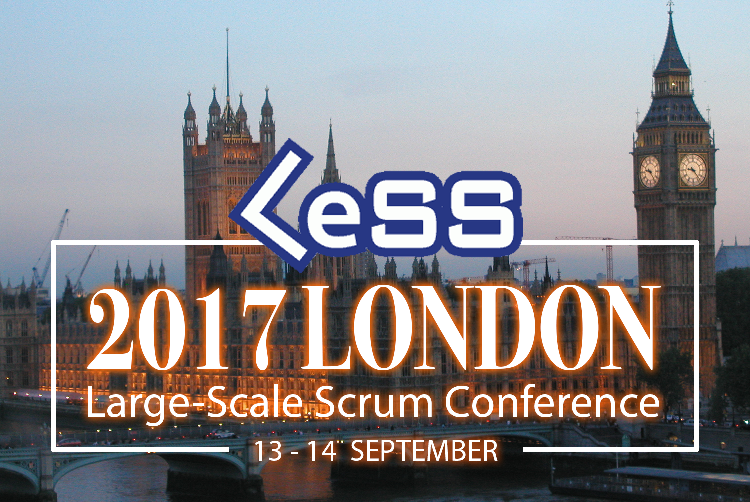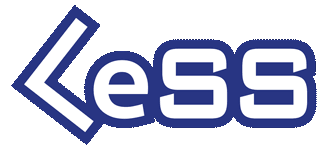Why I'm excited about the London LeSS Conference
July 27, 2017
Hi,
It is less than two months before the London LeSS Conference, and I (mostly Bas here) am super excited about the conference and the last years growth in LeSS adoptions.
London LeSS Conference
 The program for the conference is mostly done. The conference will again be team-based, and I'm looking forward to that a lot. As new experiments this year we have a games track and a LeSS training snippets track. The speakers are great! I'm looking forward to chatting with Kevlin about crappy code, Ellen about proper backlog refinement sessions (and she is having a workshop before the conference), seeing Jacek and Michael James share their Scrum Master experience and learning about Knowledge Cafes.
The program for the conference is mostly done. The conference will again be team-based, and I'm looking forward to that a lot. As new experiments this year we have a games track and a LeSS training snippets track. The speakers are great! I'm looking forward to chatting with Kevlin about crappy code, Ellen about proper backlog refinement sessions (and she is having a workshop before the conference), seeing Jacek and Michael James share their Scrum Master experience and learning about Knowledge Cafes.
Most of all I'm looking forward to having a beer and meeting up with other LeSS Practitioners and hearing all their experiences.
Growing LeSS Adoption
Usually, we don't talk a lot about "market adoption," "LeSS popularity," or things like that. Mostly because we'd like to focus on building sustainable learning organizations and, for ourselves, learning how to help companies better with that. However, we do often get questions about LeSS marketshare vs other scaling frameworks. So, for this one time, we'd like to share two recent reports that interested us.
Gartner Market Guide for Enterprise Agile Frameworks
Two weeks ago, Gartner Research published their Market Guide for Enterprise Agile Frameworks. The 2016 version showed that Disciplined Agile was the most "implemented" scaling framework, closely followed by SAFe and then LeSS. Though, if you would include the amount of companies considering a scaling framework, it would be SAFe, followed by both LeSS and Disciplined Agile. The 2017 version still shows Disciplined Agile as the most adopted scaling framework, but this time it is followed by LeSS second and SAFe third. Interestingly, if we include companies that are considering to adopt a framework, it would be SAFe, closely followed by LeSS and Disciplined Agile last. Unfortunately, I cannot share the details, you'd need to purchase the report for that.
How serious should we take it? I'm not sure, especially as I personally see very little Disciplined Agile adoptions and thus it is a bit strange that it would appear to be the most widely used scaling framework. That said, it is very different from the VersionOne State of Agile report, where SAFe is by far the largest scaling framework with LeSS only being 6th (though, I'm not sure what the 2 to 5 all mean) and Disciplined Agile just having 1%. Then, the question of course before, should we trust a market research company or a tool vendor that mostly supports SAFe as the most reliable sources?
State of DevOps 2017
When asking some questions related to feature teams and continuous delivery to my friend Jez Humble, he pointed me to the State of DevOps 2017 report. It has just been published, and they have some interesting new findings. To quote the report:
"The biggest contributor to continuous delivery — bigger even than test and deployment automation — is whether a team can do all of the following:
- Make large-scale changes to the design of its system without permission from someone outside the team.
- Make large-scale changes to the design of its system without depending on other teams to make changes in their own systems, or creating significant work for other teams.
- Complete its work without needing fine-grained communication and coordination with people outside the team. For example, not having to check 12 Google calendars to get feedback." (last 3 bullets removed)
I might be making too much conclusions here, but to me it reads that one of the biggest contributors to continuous delivery is the adoption of feature teams. Of course, that makes sense when you understand the component/feature team dynamics... We'd expect the increased focus on DevOps and Continuous Delivery to also help LeSS adoptions.
Conclusion?
We don't want to draw too many conclusions out of surveys and instead focus on actual LeSS adoptions and learning. And the only thing we can say from our data is that the amount of LeSS Practitioners have grown enormously last year and we're very excited about that!
I hope to meet some of you in London and hear about your experiences.
Thanks,
Bas
